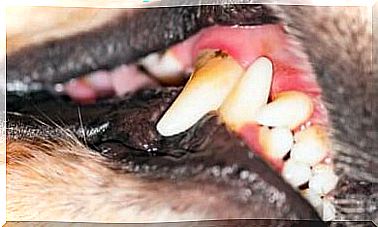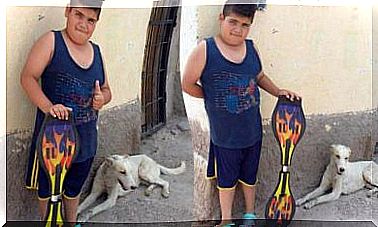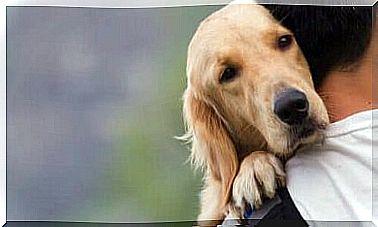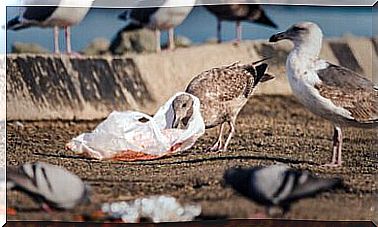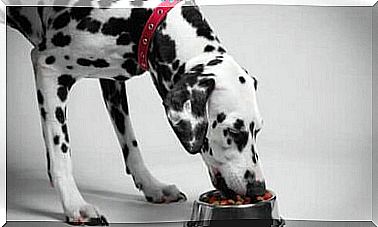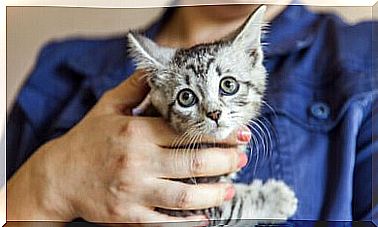Dogs Cannot Eat Candy
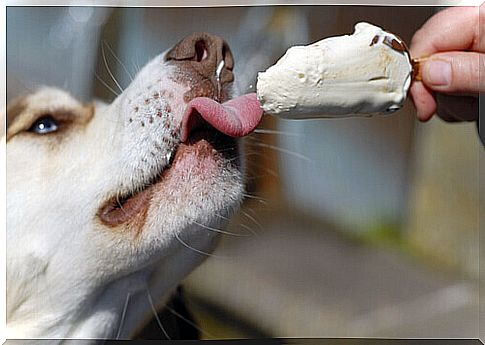
Misinformation can become very dangerous when it comes to taking care of our pets. It is very common that, due to ignorance, people end up facilitating the way to feed their animals, which can harm them. Next, we’ll explore why dogs can’t eat candy. Read with attention:
An image that everyone who owns dogs is familiar with is when, just as they are eating something, the dog starts asking for food.
Don’t let your dog’s eyes convince you, because many of the things we eat aren’t good for them.
One clarification worth making is that unless he eats an excessive amount, your dog won’t drop dead right away because he ate some candy.
However, the constant consumption of glucose can lead to very serious illnesses.
What kind of sweets can harm you

When we talk about sweets, we are referring to preparations that contain large amounts of sugar, especially artificial or processed sweeteners.
However, the continuous consumption of some natural ones, such as honey and brown sugar, also tend to be harmful to the dog’s body.
Not to mention that there are some sweets that are really toxic to them, for example chocolate and coffee sweets and also tea.
This is due to the high concentrations of a substance called theobromine which, when it accumulates in the body, causes an acceleration of the nervous and circulatory system, as well as cell destruction.
Care must also be taken with fruits and the amount of glucose they provide. In general, those that have high levels, such as mango and banana, can cause damage similar to that caused by sugar, although to a lesser extent.
Dogs cannot eat sweets sugar affects your pet’s health
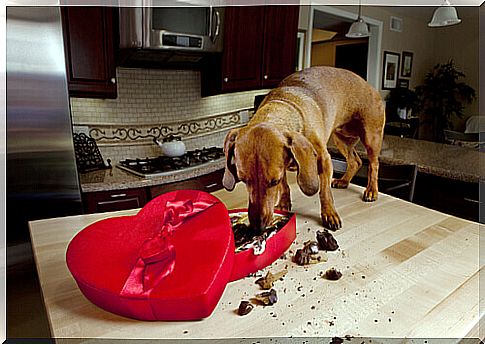
Dogs cannot eat sweets as their digestive system is different from ours, especially since they have a shorter intestine, many nutrients, vitamins or sugars cannot be metabolized quickly, so they end up accumulating in the body.
Likewise, they lack many of the enzymes that help humans process substances like fats and glucose.
Dogs cannot eat sweets because the accumulation of sugars in the body can lead to conditions such as:
- Diabetes. This can happen even with small but continuous amounts of sweets and consists of an increase in the amount of sugar in the blood.
- Changes in the blood and circulatory system . Sugar produces an excitation of the circulatory system and can have repercussions in the animal’s heart.
- Problems with teeth and gums. Consumption of sugars accelerates the onset of deterioration and damage to the delicate tissues of the gums, causing the dog to suffer from bad breath, tooth loss and bacterial build-up in the mouth.
- Pancreatitis. The consumption of sugars causes the pancreas to produce an excessive amount of digestive enzymes to be able to metabolize glucose. Over time, this production ends up inflaming the pancreas, generating serious health conditions in the dog.
- Nervous system and digestive system damage . Due to the excessive production of digestive enzymes, there is an effort of the organs of the digestive system, being especially harmful to the stomach (can generate gastritis or ulcers) and intestine.
- Obesity . Due to the high calorie content of sugar, the most common occurrence is an increase in the animal’s weight. Dog obesity is a serious problem, not only because it causes problems in joints and muscles, but also because it causes serious damage to the system. circulatory and respiratory conditions in dogs, reducing their life expectancy or causing problems that could result in the animal’s death.
- Death by poisoning.
As we said at the beginning of this article, a small amount of sugar won’t hurt your dog, but we invite you to reflect on what it means to give him a food that could end up harming him.
What we suggest is to completely eradicate artificial sugar from your diet and replace it with the consumption of vegetables or fruits, as they provide a source of sugar that in proper proportions will not harm your pet.
